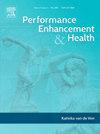A qualitative exploration of family physicians and people who use anabolic steroids: Barriers to accessing evidence-based care
IF 3.7
Q2 HOSPITALITY, LEISURE, SPORT & TOURISM
引用次数: 0
Abstract
Background
Non-medical anabolic-androgenic steroid (AAS) use poses numerous short and long-term health concerns. Literature has explored the interaction between AAS users and family physicians (FPs); however, there remains a paucity of studies exploring this in the context of the Canadian healthcare system. Further, discussions regarding anabolic steroids online have evolved in recent years with the rise of new social media platforms and information sources, warranting further investigation.
Methods
Participants were recruited through both purposive (professional networks, social media) and snowball sampling (in-person at the gym). Thirteen semi-structured interviews (seven AAS users and six FPs) were digitally conducted and inductively analyzed using thematic analysis.
Results
Four key themes emerged from the anabolic steroid user interviews: 1) AAS Culture Influences Community Connections, Self-Perceptions, and Welcomes New Members 2) Social Media's Evolving Influence on AAS Use Patterns, Culture, and Misinformation 3) Alternative Sources of AAS Information are Typically Consulted Instead of FPs, and 4) The Stigma of AAS Use Disclosure with FPs. Additionally, a fear of legal consequences served as a barrier to users accessing primary care.
Conclusion
A lack of dedicated resources and specialized medical training on anabolic steroid use currently exists. Both AAS users and FPs agreed that social media has become increasingly influential in the culture surrounding anabolic steroid use. Misinformation was observed regarding anabolic steroid use and this has become a considerable barrier exacerbated by mistrust of healthcare professionals. AAS users continue to feel stigmatized by the healthcare system, perpetuating the siloed nature of this community. Future physician training should focus on trust building and education through a harm-reduction lens.
对家庭医生和使用合成代谢类固醇的人的定性探索:获得循证护理的障碍
非医学合成代谢雄激素类固醇(AAS)的使用引起了许多短期和长期的健康问题。文献探讨了AAS用户与家庭医生(FPs)之间的互动;然而,在加拿大医疗保健系统的背景下,仍然缺乏研究来探索这一点。此外,近年来,随着新的社交媒体平台和信息来源的兴起,网上关于合成代谢类固醇的讨论也在不断发展,需要进一步调查。方法通过目的性抽样(专业网络、社交媒体)和滚雪球抽样(亲自到健身房)两种方式招募参与者。13个半结构化访谈(7个AAS用户和6个FPs)采用数字方式进行,并采用主题分析进行归纳分析。结果合成代谢类固醇用户访谈中出现了四个关键主题:1)AAS文化影响社区联系,自我认知,并欢迎新成员;2)社交媒体对AAS使用模式,文化和错误信息的不断发展影响;3)通常会咨询AAS信息的替代来源,而不是FPs; 4) FPs使用AAS披露的耻辱。此外,对法律后果的恐惧阻碍了使用者获得初级保健服务。结论目前在合成代谢类固醇使用方面缺乏专门的资源和专业的医学培训。AAS用户和FPs都认为,社交媒体对合成代谢类固醇使用的影响越来越大。关于合成代谢类固醇使用的错误信息被观察到,这已成为一个相当大的障碍,由于对医疗保健专业人员的不信任而加剧。AAS用户继续感到医疗保健系统的耻辱,使这个社区的孤立性质永久化。未来的医生培训应侧重于通过减少伤害的视角建立信任和教育。
本文章由计算机程序翻译,如有差异,请以英文原文为准。
求助全文
约1分钟内获得全文
求助全文
来源期刊

Performance enhancement and health
Social Sciences-Health (social science)
CiteScore
4.70
自引率
0.00%
发文量
27
审稿时长
57 days
 求助内容:
求助内容: 应助结果提醒方式:
应助结果提醒方式:


